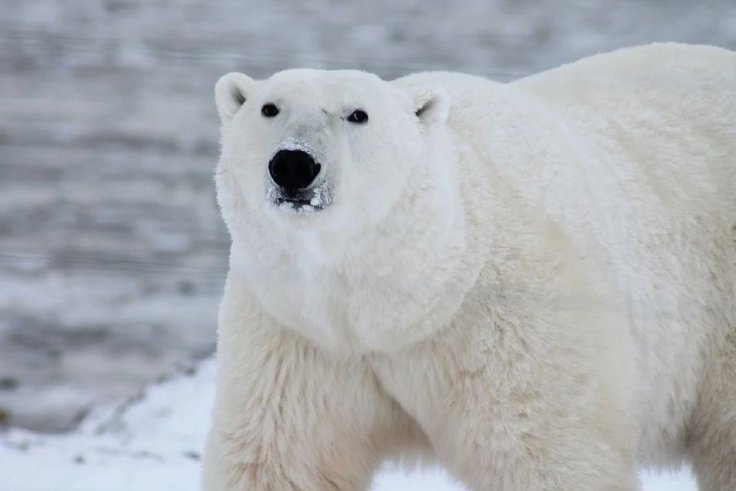A polar bear killed a woman and boy Tuesday afternoon in the northwest Alaskan city of Wales, according to Alaska State Troopers.
Troopers received a report of a polar bear attack around 2:30 p.m., troopers said in an online report. According to initial accounts, a polar bear came to the village and chased several residents, troopers said.
Bear Shot and Killed 'As it Attacked the Pair'

The bear killed a woman and a boy, troopers said. Another Wales resident shot and killed the bear "as it attacked the pair," troopers said. "Initial reports indicate that a polar bear had entered the community and had chased multiple residents," troopers wrote. "The bear fatally attacked an adult female and juvenile male."
The two people who were killed in the mauling weren't identified in the report, and troopers said officials are working to notify their next of kin. It is not yet known whether the victims were related.
Austin McDaniel, a spokesman for the Alaska Department of Public Safety, said troopers are coordinating with the Alaska Department of Fish and Game as they try to send personnel to Wales as soon as the weather allows.
Wales – a small, predominantly Inupiaq town of fewer than 150 people – is located on the far western edge of the Seward Peninsula bordering the Bering Strait, just over 100 miles northwest of Nome.
Fatal Polar Bear Attacks 'Rare' in Alaska
Fatal polar bear attacks have been rare in Alaska's recent history. In 1990, a polar bear killed a man farther north of Wales in the village of Point Lay. The man was killed while he was walking with his girlfriend while walking through an Eskimo village. Half of the man's body had been eaten by the bear, The Washington Post reported.
Biologists later said the animal showed signs of starvation, the Anchorage Daily News reported. Alaska scientists at the U.S. Geological Survey in 2019 found changes in sea ice habitat had coincided with evidence that polar bears' use of land was increasing and that the chances of a polar bear encounter had increased. This was because the sea ice they rely on for hunting seals is receding due to climate change.









